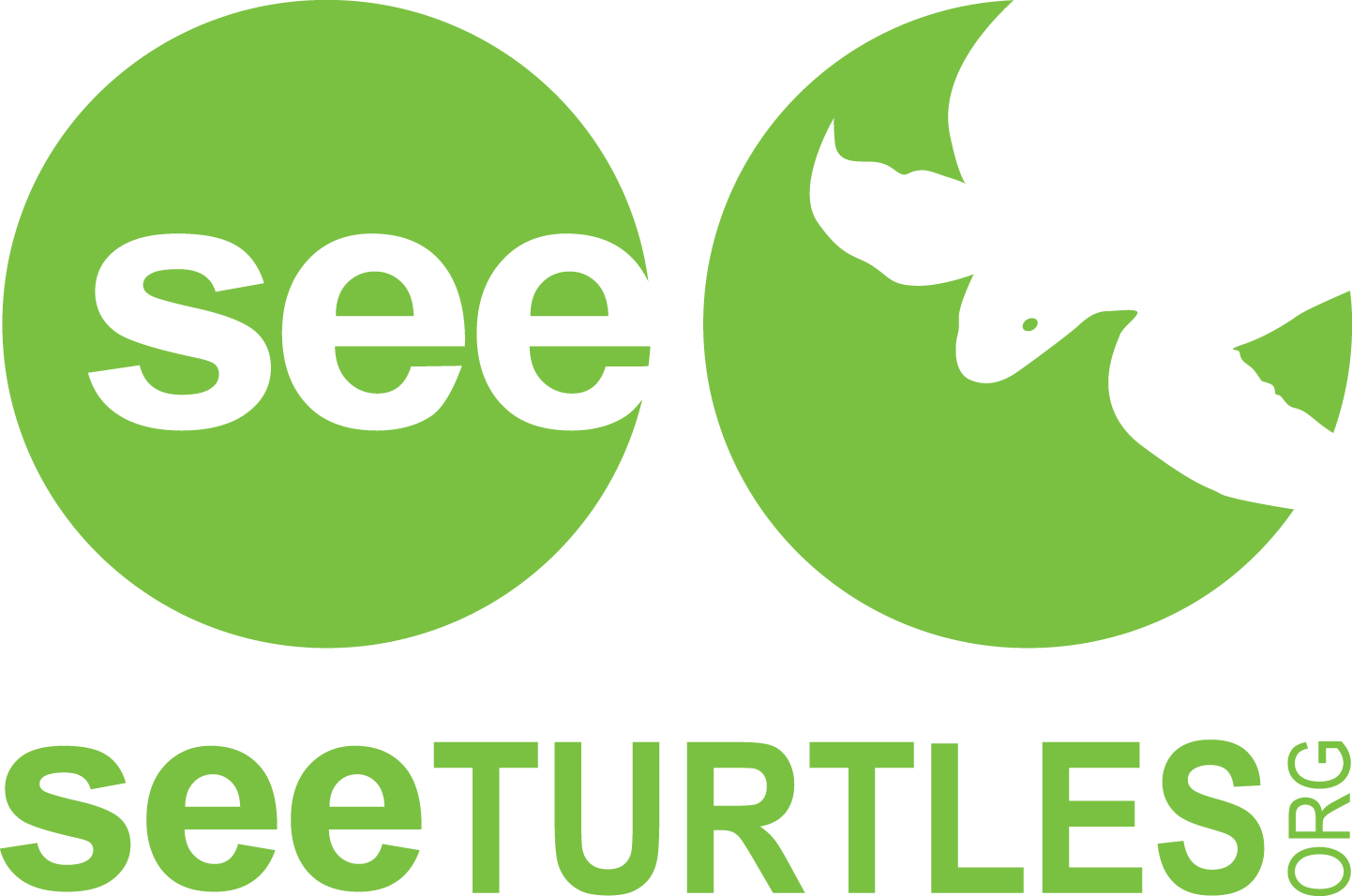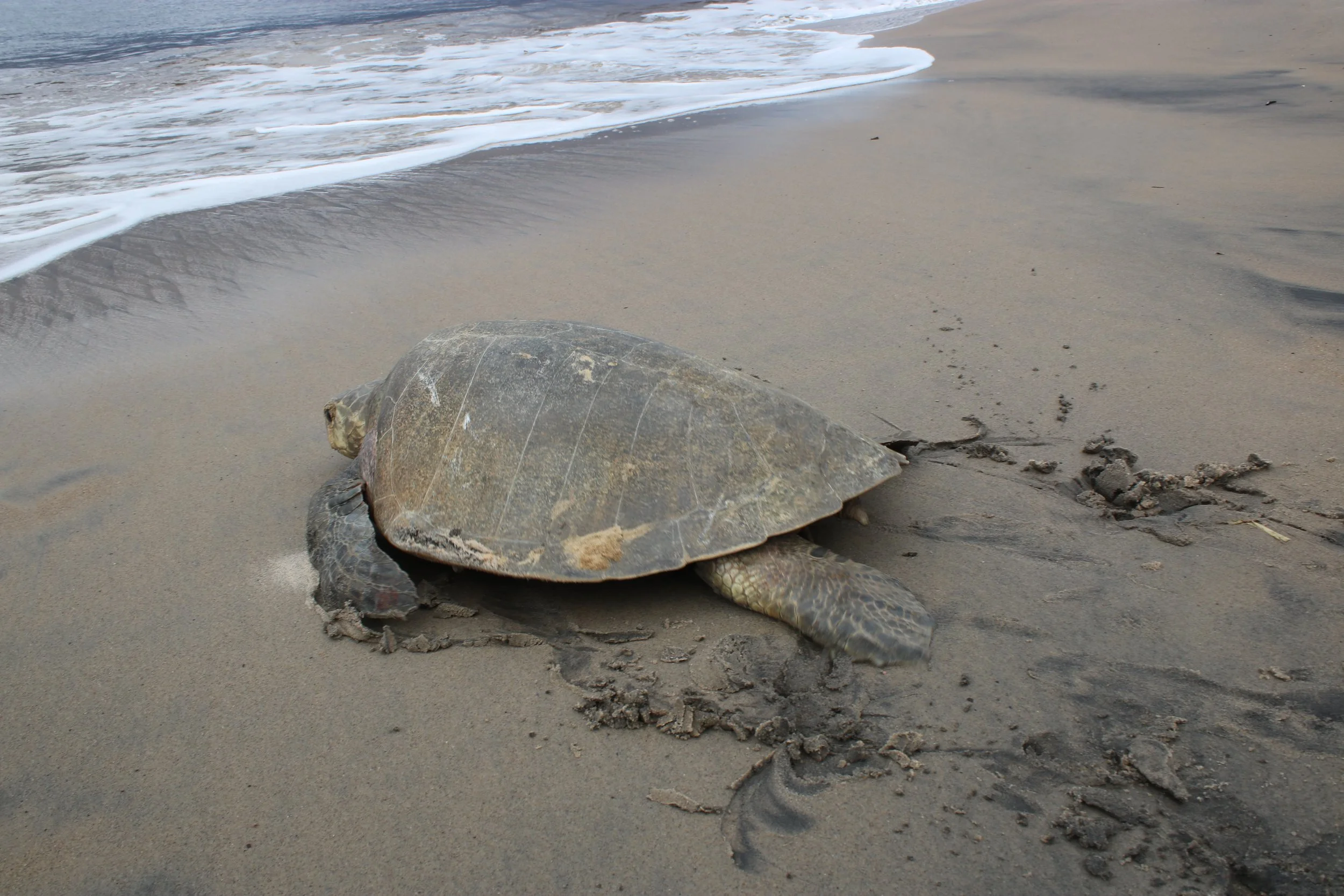Billion Baby Turtles Partner Profile: RASTOMA: – Turtle Guardians of Central Africa
A regional network of grassroots groups is protecting sea turtles across Central Africa
For generations, sea turtles have returned to the beaches of Central Africa to nest—green turtles (Chelonia mydas), olive ridleys (Lepidochelys olivacea), leatherbacks (Dermochelys coriacea), and hawksbills (Eretmochelys imbricata). But in recent decades, the turtles now face a myriad of human threats: eggs taken from nests, adults caught for meat, beaches reshaped by construction and industrial fishing lines in the water.
The Network of Actors for the Conservation of Marine Turtles (RASTOMA) in Central Africa is a group of 11 grassroots organizations across Gabon, the Republic of the Congo, Democratic Republic of Congo, São Tomé and Príncipe, Cameroon and Equatorial Guinea, working to preserve sea turtle populations in their natural habitats over the long term. Each member group works in its own corner of the coast to monitor nests, patrol beaches, work with fishers, and collect data.
Olive ridley hatchlings protected by RASTOMA Network in Democratic Republic of Congo. Credit ©David Mbuli
RASTOMA works in Central Africa because sea turtles don’t stay in one place—they migrate across countries. So, to protect them effectively, conservation efforts need to happen at a regional level. RASTOMA supports local communities to lead conservation efforts and helps create small businesses so people can earn money in ways that don’t harm turtles. The network also helps its member groups share knowledge, build skills, and have a bigger impact—for both sea turtles and the coastal environments they depend on.
And in order to give communities a better understanding of conservation project activities, to gain their support and to propose activities that are profitable and adapted to local contexts, RASTOMA also encourages involving local communities in the design and choice of projects.
The main community approaches carried out by RASTOMA member structures are:
Beach Patrols: More than 50 trained fishers patrol nesting beaches, protect eggs, collect data, and deter illegal hunting.
Port Monitoring: Community members, including women, check landing sites and markets for illegal trade in turtle products.
Responsible Fishing: Around 150 fishers in Cameroon have been trained in sustainable techniques to reduce bycatch and boost incomes.
Ecotourism: More than 25 local residents have become eco-guides, creating income while promoting turtle conservation.
Alternative Livelihoods:
Women in the Iyassa community produce and sell coconut oil.
Fishers in Dizangue have taken up beekeeping.
Smokehouses and snail farms help reduce pressure on mangroves and turtle populations.
Women farmers are growing cassava, plantain, and maize with support from agricultural partners.
Olive ridley turtle returning to the water after nesting. Credit RASTOMA
We’ve provided 9 grants totaling about US $80,000 to RASTOMA over the past three years to help fund their efforts in Cameroon, Gabon, Democratic Republic of Congo, and Equatorial Guinea including night patrols and beach cleanups. Through this partnership, they’ve helped protect more than 147,000 baby turtles since 2023 and collected more than 7,000 lbs during Sea Turtle Week beach cleanups. These funds have been provided by the J&K Berman Memorial Fund which provide multi-year grants to establish new conservation programs on important nesting beaches.
“Thanks to support from SEE Turtles, we’ve not only seen a significant reduction in poaching rates at our key nesting beaches, but we’ve also been able to strengthen community involvement. Local communities have played an increasingly active role in patrols, nest protection, and awareness campaigns—becoming true allies in the fight to protect these endangered species,” writes RASTOMA.
RASTOMA team from Gabon. Credit: RASTOMA
“This collaboration has laid the foundation for more inclusive and sustainable conservation practices. We look forward to continuing this valuable partnership to ensure the long-term survival of sea turtles and to further empower the communities who share their habitat.”
Learn more:
RASTOMA website (in French)
Billion Baby Turtles passes 20 million baby turtles saved milestone



